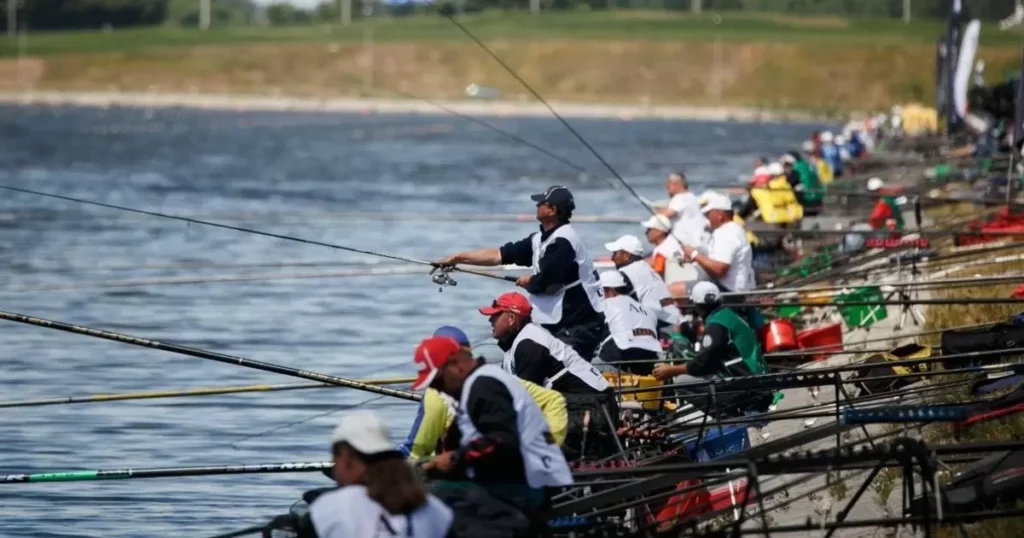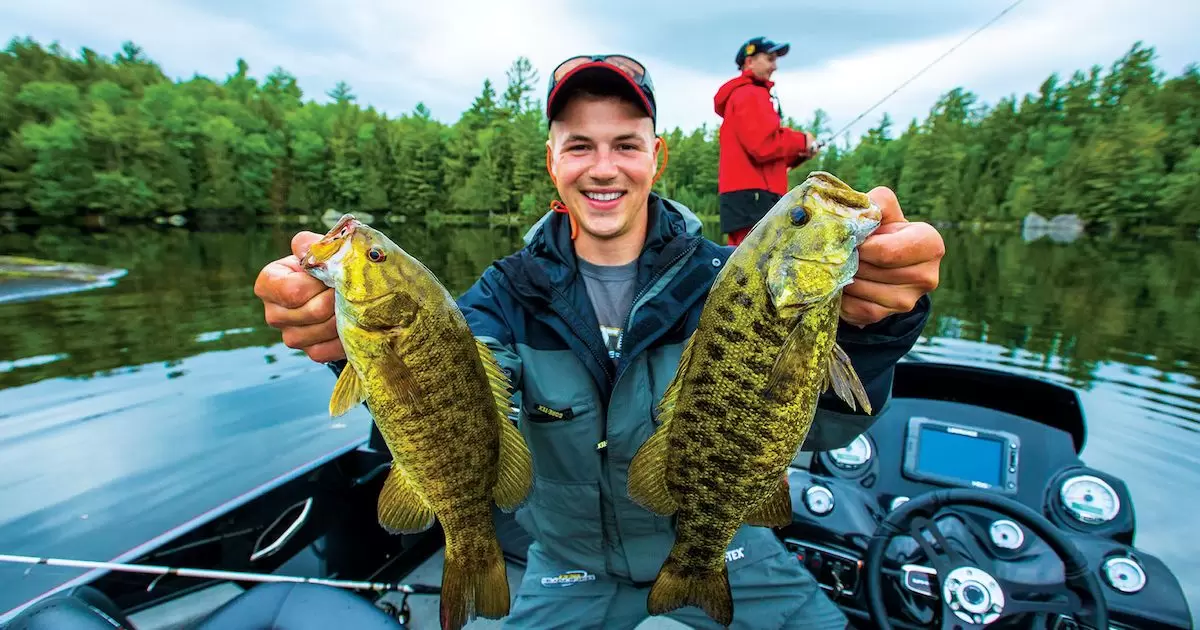Bass fishing is a popular recreational angling pursuit that focuses on catching various species of bass, such as largemouth and smallmouth bass. Anglers employ various techniques and equipment, including lures, rods, and reels, to target these prized freshwater game fish, known for their challenging fight and sporting appeal.
How To Become A Bass Fishing Pro? Embark on an exciting journey of skill, strategy, and passion. Discover the secrets of luring, casting, and reeling in those elusive basses. Uncover the art of locating prime fishing spots, mastering the gear, and reading the water. Join the elite ranks of professional bass anglers and turn your fishing hobby into a thrilling career.
Among the many types of fish sought by anglers, bass stands out as a popular choice due to its fighting spirit and delicious taste. But what if you want to take your bass fishing hobby to the next level and become a true professional? This comprehensive guide will walk you through the steps, strategies, and tips to transform from a casual angler into a bass fishing pro.
Understanding the Basics
Understanding the basics of how to become a bass fishing pro is essential for aspiring anglers. It involves familiarizing yourself with different bass species, acquiring quality fishing gear, and mastering various fishing techniques. Knowledge of local waters and environmental stewardship are equally crucial, forming the foundation of a successful professional angling career.
Bass Species
Bass are a diverse family of fish that includes largemouth bass, smallmouth bass, spotted bass, and more. Each species has its unique characteristics and behaviors, so take time to study the specific type of bass found in your local waters. Understanding the differences will help you tailor your fishing techniques and strategies.
Fishing Gear
Invest in high-quality fishing gear, including fishing rods, reels, lines, and lures. You’ll need to have a diverse set of tools in your tackle box to adapt to different fishing conditions. A good bass fishing pro is always well-equipped, with a variety of lures, hooks, and lines suited for different scenarios.
Fishing Techniques
Master various fishing techniques such as flipping, pitching, casting, and trolling. Each technique is suited for different situations, so practice and proficiency are vital. Additionally, learn to adapt your techniques based on the time of day, season, and the behavior of the bass. Being versatile in your approach can make a significant difference in your catch rate.
Education and Knowledge
Education and knowledge are pivotal on the path to becoming a bass fishing pro. It includes an in-depth understanding of local waters, bass behavior, and environmental conservation. Expertise in these areas empowers anglers to make informed decisions and adapt to various conditions, increasing their chances of success and contributing to sustainable fishing practices.
Study Local Waters
Know your local waters inside out. Understand the underwater topography, water temperatures, and seasonal patterns. The more you know about your fishing environment, the better your chances of success. Invest in a good fishfinder or sonar to map the underwater terrain and locate the most promising fishing spots.
Learn About Bass Behavior
Study the behavior of bass in different seasons, including their feeding habits and preferred hiding spots. Knowledge of bass behavior is invaluable when planning your fishing strategy. For example, during the spawn, bass may be found in shallow waters near their nests, while in the heat of summer, they may seek deeper, cooler areas.
Environmental Stewardship
Becoming a bass fishing pro comes with responsibilities. Practice catch and release, respect fishing regulations, and promote environmental conservation. A healthy ecosystem benefits everyone and ensures that bass fishing remains a sustainable and enjoyable sport for generations to come.
Practice, Practice, Practice
Practice is a cornerstone of becoming a bass fishing pro. Regularly honing your fishing techniques, experimenting with lures, and refining your skills is paramount. Keeping a fishing journal to document experiences and analyze past trips helps identify patterns and improve strategies, ensuring a steady journey toward professionalism in the world of bass fishing. The path to professionalism is paved with practice and experience.
Hone Your Skills
Dedicate time to practicing your fishing techniques regularly. The more you fish, the more you’ll learn. Experiment with new lures, baits, and fishing spots to expand your skills. Consider simulating different fishing scenarios to refine your abilities. You can use fishing video games or virtual reality fishing experiences to practice during the off-season.
Keep a Fishing Journal
Maintain a fishing journal to document your fishing trips. Record the weather, water conditions, and your catch. Over time, this journal will become a valuable resource for improving your fishing strategy. Analyzing your past experiences can help you make data-driven decisions about when and where to fish.
Fishing Competitions
Fishing competitions are pivotal in an angler’s journey to professionalism. They begin with local tournaments, offering valuable experience and networking opportunities. Joining fishing clubs enhances connections and opens doors to larger contests. National competitions are the pinnacle, providing a platform to showcase skills and gain recognition in the angling community.

Participating in fishing competitions is an essential step to becoming a bass fishing pro.
Local Tournaments
Start by entering local bass fishing tournaments. These events provide valuable experience and help you build your reputation within the local fishing community. Winning or placing high in these tournaments can attract attention and open doors to more significant competitions.
Joining Fishing Clubs
Joining a fishing club or association can connect you with other passionate anglers and open doors to more significant competitions and knowledge sharing. Clubs often have a wealth of information, including secret fishing spots and tips from experienced members.
National Competitions
As your skills and reputation grow, aim for national bass fishing competitions. These events attract top anglers and can provide a significant platform for showcasing your skills. However, reaching this level may take several years of experience, networking, and consistent success in local and regional tournaments.
Networking and Mentorship
Networking and mentorship play a pivotal role in an angler’s journey to becoming a bass fishing pro. Building connections with fellow enthusiasts, attending fishing expos, and engaging in online forums are ways to expand your circle. Mentorship from experienced anglers can provide valuable insights, shortcuts to success, and guidance in navigating the competitive fishing world.
Networking is a key element in your journey to becoming a bass fishing pro.
Build Connections
Attend fishing expos, seminars, and online forums to connect with fellow anglers. Building relationships with others who share your passion can lead to opportunities and valuable advice. Networking can also introduce you to potential sponsors and partners in the fishing industry.
Learn from Experienced Anglers
Seek mentorship from experienced bass anglers. Learning from those who have been in the game for years can accelerate your growth as an angler. They can provide insights, tips, and guidance that would take years to learn on your own. A mentor can also help you navigate the complexities of the fishing industry.
Sponsorships and Gear
In the journey to become a bass fishing pro, sponsorships and gear play a pivotal role. Building a personal brand and attracting sponsors is essential for access to top-quality equipment and financial support. As you gain recognition, sponsorships and access to top-notch gear become more achievable.
Building Your Brand
Create a personal brand as a bass fishing pro. A recognizable brand helps attract sponsors and build your fan base. Consider designing a unique logo, establishing a consistent online presence, and telling your story as an angler. Your brand should reflect your passion for fishing and your commitment to the sport.
Attracting Sponsors
Approach fishing gear companies and outdoor brands for sponsorships. Show them your dedication, knowledge, and the value you can bring to their brand. Demonstrating that you can positively represent their products and drive sales is essential. Sponsorships can provide you with free gear, financial support, and opportunities to collaborate on promotional activities.
Online Presence and Social Media
Building an online presence and utilizing social media platforms is vital for modern anglers. It helps showcase fishing adventures, engage with audiences, and share expertise, fostering a dedicated online community. In today’s digital age, a strong online presence is essential for professional anglers.
Building a Following
Utilize social media platforms to showcase your fishing adventures. Engage with your audience, share tips and stories, and grow your online following. Consistently posting high-quality content and interacting with your followers can help you gain a dedicated online community.
Sharing Your Knowledge
Create a website or blog to share your expertise, fishing techniques, and insights. Sharing your knowledge not only helps others but also solidifies your reputation as an expert. You can offer fishing guides, how-to articles, and reviews of fishing gear. As your website gains traffic, it can also generate income through ads and affiliate marketing.
FAQs
What does it take to become a bass fishing pro?
Becoming a bass fishing pro requires skill, practice, and dedication. You need to excel in bass fishing tournaments and gain sponsorships.
How can I improve my bass fishing skills?
To improve your skills, study the behavior of bass, practice casting and reeling techniques, and learn from experienced anglers.
Are there any specific qualifications for becoming a bass fishing pro?
There are no formal qualifications, but successful pros usually have a track record of tournament wins and a strong social media presence.
What’s the best way to start a career as a bass fishing pro?
Start by participating in local tournaments, networking with anglers, and building your reputation in the bass fishing community.
How do I secure sponsorships in bass fishing?
To secure sponsorships, consistently perform well in tournaments, create a professional angler profile, and approach potential sponsors with a compelling proposal.
Conclusion
Becoming a bass fishing pro is a journey that requires dedication, knowledge, and passion for the sport. By understanding the basics, continually learning, practicing your skills, participating in competitions, networking, and building your online presence, you can turn your love for bass fishing into a rewarding and potentially lucrative career.
Remember that the road to professionalism is not always easy, but with hard work and perseverance, you can turn your dreams of becoming a bass fishing pro into a reality. So, get out there, cast your line, and start your journey to becoming a bass fishing pro.

